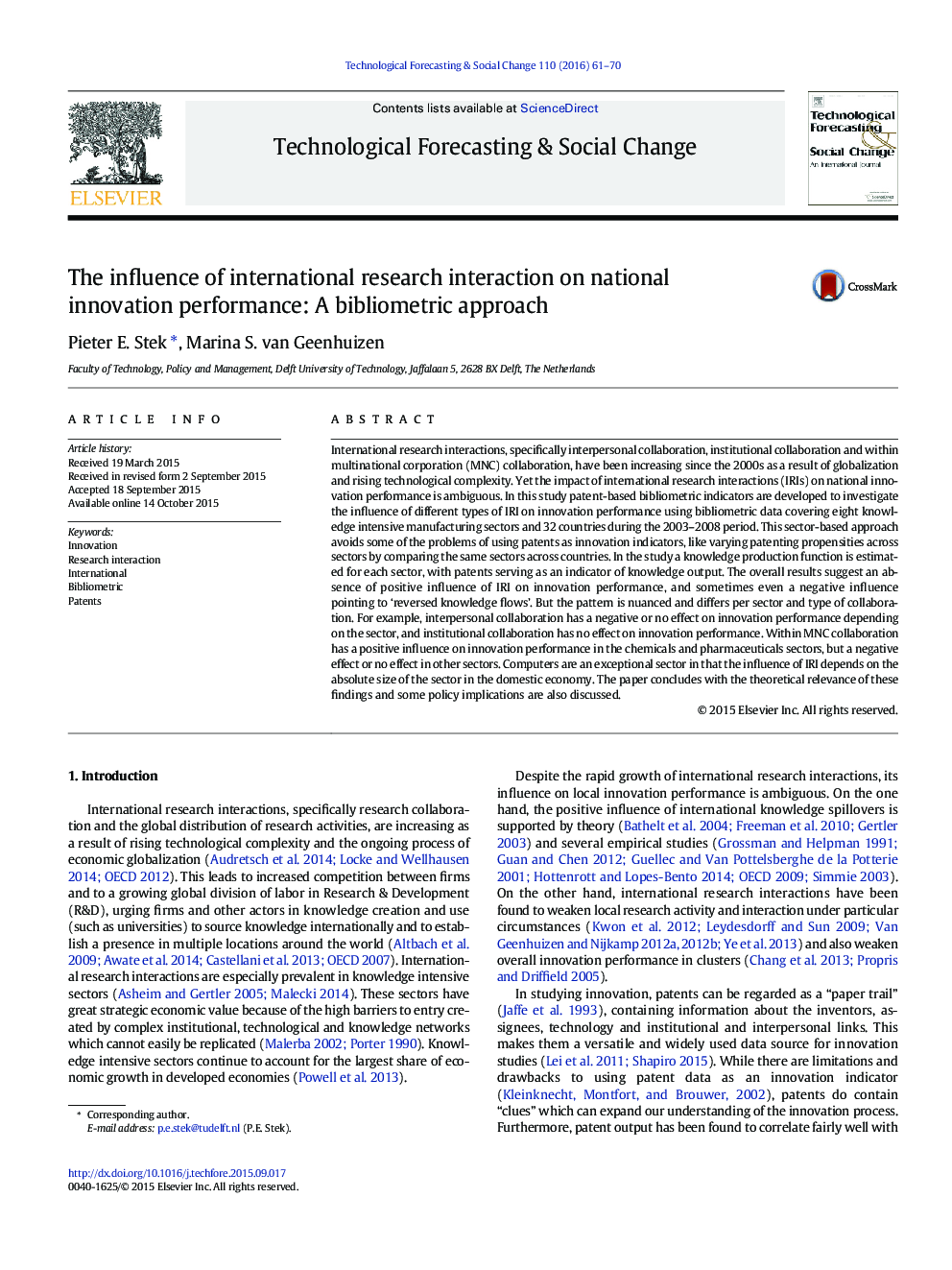| کد مقاله | کد نشریه | سال انتشار | مقاله انگلیسی | نسخه تمام متن |
|---|---|---|---|---|
| 896327 | 1472390 | 2016 | 10 صفحه PDF | دانلود رایگان |
• Compares eight knowledge intensive manufacturing sectors in 32 countries
• Negative or no influence of interpersonal collaboration on innovation performance
• Positive influence of within MNC collaboration in chemical and pharmaceutical sectors
• For the computer industry, size of the sector matters
• Validation with alternative bibliometric indicators and statistical data
International research interactions, specifically interpersonal collaboration, institutional collaboration and within multinational corporation (MNC) collaboration, have been increasing since the 2000s as a result of globalization and rising technological complexity. Yet the impact of international research interactions (IRIs) on national innovation performance is ambiguous. In this study patent-based bibliometric indicators are developed to investigate the influence of different types of IRI on innovation performance using bibliometric data covering eight knowledge intensive manufacturing sectors and 32 countries during the 2003–2008 period. This sector-based approach avoids some of the problems of using patents as innovation indicators, like varying patenting propensities across sectors by comparing the same sectors across countries. In the study a knowledge production function is estimated for each sector, with patents serving as an indicator of knowledge output. The overall results suggest an absence of positive influence of IRI on innovation performance, and sometimes even a negative influence pointing to ‘reversed knowledge flows’. But the pattern is nuanced and differs per sector and type of collaboration. For example, interpersonal collaboration has a negative or no effect on innovation performance depending on the sector, and institutional collaboration has no effect on innovation performance. Within MNC collaboration has a positive influence on innovation performance in the chemicals and pharmaceuticals sectors, but a negative effect or no effect in other sectors. Computers are an exceptional sector in that the influence of IRI depends on the absolute size of the sector in the domestic economy. The paper concludes with the theoretical relevance of these findings and some policy implications are also discussed.
Journal: Technological Forecasting and Social Change - Volume 110, September 2016, Pages 61–70
